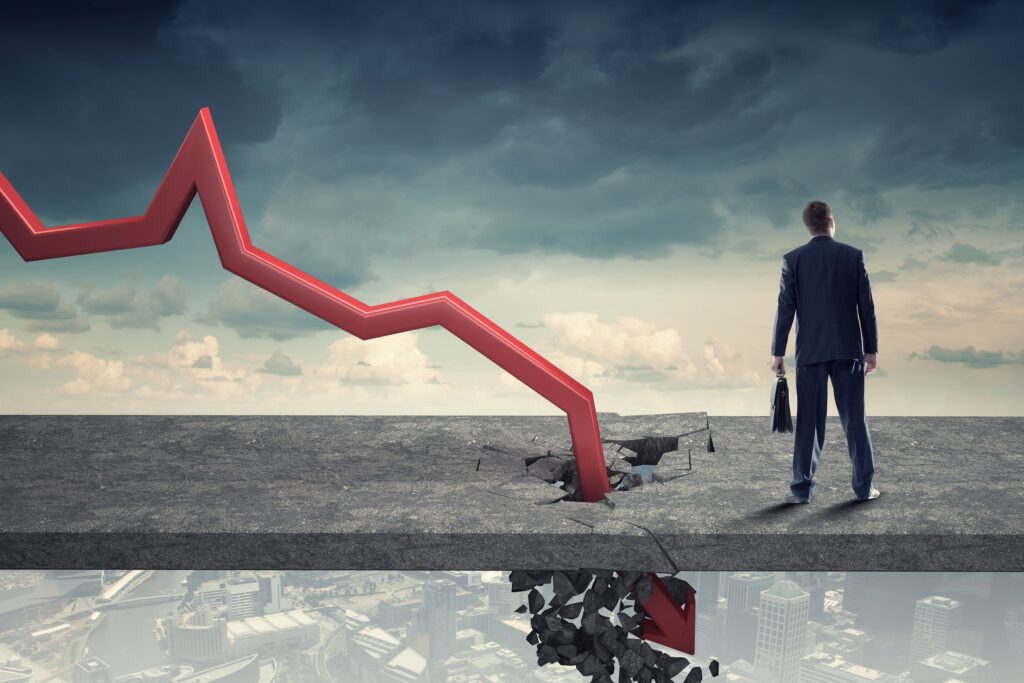What is the Decline in Social Reputation Required for Defamation to Occur? An Explanation by a Lawyer

The term “honor” in defamation refers to external honor, which signifies the evaluation given by society to an individual. Therefore, to defame someone’s honor means to lower their social reputation. This is the same in both criminal and civil law.
In other words, even if the victim feels that it is undesirable to be spoken about in such a manner, or even if what is said is not true, defamation does not occur unless it is recognized that being spoken about in such a way lowers the victim’s social reputation.
This is a theme that becomes an issue in actual defamation lawsuits. For example, what if a certain business owner is written about as “driving a luxury foreign car”? In reality, this business owner is the type to save money and drives a domestic car, and it is against his will to be said to be “driving a luxury foreign car”, and it also contradicts the truth. However, even so, does being said to be “driving a luxury foreign car” lower one’s “social reputation”? If the judgment is made that “it does not necessarily lower the social reputation”, then defamation does not occur.
What is the Concept of “Decline in Social Reputation”?
In Japanese criminal law, defamation is considered an “abstract danger crime”. This means that it is not necessary to have actually caused a decline in someone’s social reputation or to have created a specific danger of such. In other words, for example, if someone is accused of being a habitual sexual harasser, it is not necessary to interview acquaintances asking, “Did your opinion of him decline when you heard he was sexually harassing people?” It is sufficient to say, “Generally speaking, there is a risk of reputation decline if someone is accused of sexual harassment.” This is because social reputation is intangible, making it difficult to prove an actual decline in social reputation.
In Japanese civil law as well, it is not necessary to have actually caused a decline in someone’s social reputation. It is sufficient to have created a risk of such. So, when is it judged that someone’s “social reputation has declined” in actuality? Let’s consider typical examples of situations deemed to have caused a “decline in social reputation” while looking at civil court cases.
Case of Defamation Claiming Criminal Conduct Resulting in Lowered Social Reputation

Unless the crime in question is extremely minor, allegations of criminal conduct are generally considered defamatory, as they tend to lower the person’s social reputation.
In February 1978, a woman was arrested by the Aomori Police Station on suspicion of arson at a hot spring inn in Aomori City. She was indicted on the same charge by the Aomori District Public Prosecutors Office, and was acquitted in July 1985 (Showa 60). A former chief of the Criminal Investigation Division of the Aomori Police Station at the time of her arrest made comments to a Weekly Gendai reporter such as “I still personally believe she is the culprit” and “She is no ordinary person. She is worse than a yakuza.” These comments were reported, and the Aomori District Court ordered him to pay 500,000 yen in damages for defamation on February 16, 1993. The court stated in its judgment, “The defendant’s comments lead ordinary people to speculate whether the plaintiff, who has been acquitted, might actually have committed the crimes of arson and fraud. It is clear that these comments defame the plaintiff’s reputation.” The court also stated, “Given the overall content and style of the article, it is clear that the defendant’s comments, which emphasize the plaintiff’s maliciousness and suggest that she is worse than a yakuza, were not made solely for the purpose of public interest.”
There is a similar case where comments made in the “Modern Thought Forum” in the Nifty Serve computer communication system were deemed to be defamatory.
The Tokyo High Court ruled on September 5, 2001, that while a member could immediately counter or ignore criticism or rebuttals directed at them in the forum, comments such as “He committed infanticide for economic reasons” and “There is strong suspicion that he violated U.S. immigration laws. He is a complete criminal” were defamatory, as they lowered the social reputation by implying that the defendant had committed the crimes of infanticide and illegal stay. The court ordered the payment of 500,000 yen. The Tokyo High Court described these comments as “merely foul-mouthed insults suggesting that the facts publicly stated by the defendant constitute a crime, without any meaningful support for the argument, and not even interpretable as being made to refute the defendant’s argument. Such comments cannot be tolerated in the name of free speech.”
It is not permissible to casually label someone a criminal without reasonable grounds to believe the truth of the facts.
Cases where reports of divorce and infidelity have been considered defamation, leading to a decrease in social reputation
In today’s society, where the number of divorcing couples has increased, the fact of divorce may not necessarily lead to a decrease in the social reputation of the parties involved. Therefore, it may depend on how it is reported, but when it comes to extramarital affairs, negative social and moral evaluations are still prevalent. Especially if a mother with young children is reported to be in an extramarital relationship, it is clear that her social reputation as a family person will decline.
A verdict was delivered on December 24, 2013 at the Tokyo District Court in a lawsuit where actress Eiko Koike and her agency sought damages from the Sports Hochi newspaper for damaging her honor and interfering with her work by reporting a “divorce crisis”.
The Tokyo District Court, while finding it difficult to acknowledge that the fact of divorce necessarily leads to a decrease in the social reputation of the parties involved in today’s society where the number of divorcing couples has increased, stated that Ms. Koike “as an actress and talent who has maintained a harmonious marital relationship and gained popularity, it is recognized that she was widely engaged in activities such as appearances in commercials, TV programs, movies, and stage performances at the time of the publication of the articles in question, and that she was forced to change her main activities and work content as an actress and talent due to the publication of the articles in question. Therefore, the publication of the articles in question by the defendant can be considered as not only defaming the plaintiff’s honor, but also interfering with her work as an actress and talent, and causing appropriate damage to the plaintiff.” The court ordered the Sports Hochi newspaper to pay 2.2 million yen to Ms. Koike and 1.1 million yen to her agency in damages.
As another example, there was a case where actress Ryoko Hirosue sought damages from Shogakukan, the publisher of the magazine “Josei Seven”, for defaming her social reputation by reporting that she was in an extramarital relationship with a man other than her husband while she was in the midst of a divorce dispute and living separately.
The Tokyo High Court, in its appellate decision on December 9, 2008, stated that “the articles in question give the general reader the impression that Ms. Hirosue is in an extramarital relationship with a man she was once rumored to be involved with in the midst of her divorce issues. This not only negatively affected her social reputation as a wife and mother, but also negatively affected her social reputation as an actress beyond the evaluation of being a free-spirited actress. Furthermore, the articles in question can be considered baseless.” The court recognized defamation and ordered Shogakukan to pay 2.3 million yen for the damage.
Examples of Defamation Affecting Professional Reputation and Social Reputation

As introduced in another article on our site, there is a case where Mari Kotani, the author of the critique collection “Holy Mother Evangelion,” was written in a column in the book “Altar Culture Japanese Edition” that the pen name belongs to her husband, causing a misunderstanding as if her husband wrote “Holy Mother Evangelion.” She claimed defamation and sought damages against the column author, the editor, the publisher MediaWorks, and the distributor Shufu no Tomo.
On December 25, 2001, the Tokyo District Court stated that the defendant’s description was “equivalent to completely denying the social reputation of the plaintiff, who has been active in a wide range of fields, including lectures, speeches, dialogues, and roundtable discussions, under the pen name ‘Mari Kotani’, writing feminist and SF novel critiques, and winning the Japanese Translation Grand Prize Thought Division and the Japanese SF Grand Prize.” The court accepted Kotani’s claim and ordered the payment of 3.3 million yen for the damage.
In a defamation lawsuit over an article in the magazine “Weekly Gendai” that reported on a sumo wrestling match-fixing suspicion, the Supreme Court on October 21, 2010, rejected both the appeal of the publisher Kodansha and the freelance writer who wrote the article. The second-instance judgment of the Tokyo High Court, which recognized defamation and ordered a total of 44 million yen in compensation for two cases and the placement of a retraction advertisement in the magazine, was finalized. The second-instance judgment stated that it was clear that the social reputation of former Yokozuna Asashoryu and others, who were said to have repeatedly fixed matches, and the Sumo Association, which was said to have ignored it, had declined, and yet “the content of the coverage was extremely sloppy and the manner of the defamation in this case was malicious.”
It is only natural that such defamation, which fundamentally shakes the trust that professionals have built up, is strictly held accountable.
Case Study: The Impact of Online Defamation on Social Reputation
A case arose where an associate professor at a university sought damages for defamation after being anonymously posted about on the forum “2channel” by a student of the same university. The posts included statements such as “Stop harassing people for fun” and “Can’t keep your sanity without power harassment, sexual harassment”.
On April 24, 2014, the Yokohama District Court ruled that these expressions suggested that the plaintiff, who was an associate professor at the university, was engaging in harassment. The court stated, “Based on the ordinary attention and interpretation of general readers, these articles give the impression that the plaintiff lacks the qualifications and abilities as an associate professor at a university, and can lower the social reputation of the plaintiff. Therefore, the defendant’s act of posting these articles should be considered as an illegal act that defames the plaintiff’s honor.” The court recognized damages of approximately 1.8 million yen, including 1 million yen for emotional distress and approximately 700,000 yen for the cost of investigating the person who made the posts.
In a case where a man who had been defamed on the “Yahoo! Bulletin Board” sued the intermediary provider to disclose the sender information of the “reposter” who anonymously reposted the article on “2channel”, the Tokyo High Court ruled on September 6, 2013 that “the reposting spread the information and further lowered the social reputation”. The court stated, “Anonymous reposting without showing any specific basis is defamatory and has no public interest,” and ordered the disclosure of the reposter’s information. This was the first judgment to rule that even “reposting” defamatory articles on another internet bulletin board constitutes defamation.
If “reposting alone can constitute defamation”, there is a possibility that posts on Twitter and SNS, as well as summary sites, could also be questioned for defamation. It is dangerous to copy and paste and repost with a light heart, half in jest.
Summary
There are many cases where it is difficult to determine whether it has been acknowledged that “social reputation has been lowered”. Please consult with an experienced attorney. You can also get detailed explanations about the prospects and procedures of the trial.
Category: Internet





















